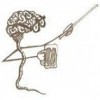Effective communication
Many things enter into effective communication. If one is lacking in one of the following they can compensate by strengthening the other attributes. A few are:
1) [Voice Moderation] - Someone who speaks consistently with a monotone voice will lose 85% of their audience within the first few minutes. If an individual were to practice and master the art of changing tones and emphasizing various words in a conversation they will retain attention and will be on their way to being a dynamic speaker.
2) [Eye Contact] - To have confidence in your words and actually extend them to the hearts and minds of the audience you must have eye contact. It shows that you know exactly what you are talking about. For a larger audience it's imperative that you don't look at one specific individual but rather "points" throughout the audience.
3) [Hands and Gestures] - Attention span of human beings is naturally short and exaggerated ways must be employed to keep their attention. Someone who stands there without emotion or moving around is like watching grass grow to the audience. In fact, the audience would much rather prefer that activity! Use your hands naturally with the words you use.
4) [Content] - Whether before a large audience or a single individual content is vital. Your remarks, no matter how long, must have an introduction followed up with the details and body of remarks and finishing with a conclusion. This is essentially making your case.
5) [Countenance] - More important before a large audience but also effective for smaller is the doctrine of personal countenance. Be well groomed, clean and without pungent body odor. These are different times from a hundred years ago. Studies show that people are generally more trusting now of those without facial hair, ie mustache and beard. I dislike this because I have a goatee but that goes with the times we are in.look them in their eye and with sincerity --
plus the message is clear and you mean the same thing, understanding the context and the culture of the person,prettydarkhorse
I ken what you mean but think what you wrote only accounts for half the circle... I recall the examples of the Anglo-American school principal who misread Hispanic students. The principal took the students' aversion for eye-contact as a sign of guilt, when the student meant it as a sign of respect. So, no matter how much I make the message clear mean what I say, I can never fully understand the other person's culture. Does that suggest what Jacques Derrida thought, that meaning is endlessly deferred? does it hint that we can never actually know for certain what the other person meant, let alone what they actually thought?
Effective communication takes place when all parties understand the issues they are addressing. That doesn't mean they have to agree with it just so long as they all understand it/them.
To make communication effective terminology of words and the meanings should be of singular in aspect, so universally people can communicate on the same level and understanding.
Effective communication may vary with its context. For ads or commercial purpose, wat Spanstar says is ok. But If you take it for a diplomatic context, then it simply may indicate the effectiveness of negotiation. In such diplomatic scenario, ineffective communication means that both parties may understand each other but refuses to agree on a particular issue.
An effective communicator empathizes with the audience, which means listening first.
If you can't walk someone else's path, then don't try to tell them what road to follow.So, does that mean, if someone has walked the same path, then they have the right to tell others what to do?

I'm not insinuating anything, but last time I checked, there was no universal understanding of life or it's meaning, so people can learn how to find out what is best for them?
The too many misconceptions in existence, being maintained and purported/perpetuated forth from many others, so as to usurp power and wealth at the expense of those who do not know any better is a constant on-going problem.
Too many people have skewed views, which lead to a misunderstanding and to other consequences.
No offense intended. Just an expression of thought."So, does that mean, if someone has walked the same path, then they have the right to tell others what to do?"
Not at all, Cagsil. What it means is that if someone has walked the same path, then there is an empathetic connection between the someone and the other. The someone must find shared experiences with the other, and in so doing, can find the words, the posture, the gestures, to get a point across so that it is understood by the other.
That is the core of effective communication. And it takes a considered effort to achieve.
It's about seeing an issue from someone else's point of view and identifying with that view in order to find a shared ground.If someone can see something from another side...doesn't that mean then that they can form a objective view other than subjective bias?
I completely understand everything you just said. I am only adding to it, for more clarity on the bigger picture.
Thus, leading one to conclude that people can be objective at times. That's all.
Nice to see you again Sally's Trove.
"If someone can see something from another side...doesn't that mean then that they can form a objective view other than subjective bias?"
This is a good question. What is subjective and what is objective will continue to be thrown into the arena of dialogue from now until eternity, as it always was in the past.
Each of us brings our own past, our own experiences, to the task of communicating. And so, our interpretations will be colored by how we were raised, what things happened to us, and, OMG, probably by our DNA as well.
If someone can see something from another side, with empathy, then I think there's a good chance objectivity can follow.
Thanks for a great point, counter point, Cagsil.The idea that good communication is the ability to see the other side is absolutely right in my opinion - but this does not lead to objectivity it leads to two subjective views, or a wider subjective view for each side.
Can you please explain what you said? How does empathy lead to two subjective views?
empathy is not agreement - it is understanding and sympathising with another. I may empathise with you - it does not mean I agree with you ?
It means that I can understand your point and I am listening and doing everything that has been posted in this thread. I can empathise with christians but I cannot agree with them. I can empathise with terrorists - does not mean I agree with them.
Effective communication is speaking or writing in a manner that's most effective to the person or persons you are trying to communicate with. It may mean using the most understandable, simple terms you know to get your point across. In one on one conversations, body language and facial expression makes a huge impact, as well as tone of voice. I believe that effective communication takes a long time to master.
Wouldn't effective communication be assertive communication, including good listening skills, while taking body language and tone of voice into consideration? imho anyway.
In my opinion, YES! An essential part of communication is interactivity. You offer information, but also are willing to receive it with actual interest and care. Good point!

How does I get my body language into an effective online communication?

Let's see how we can fix this one.....um...um...I know!!
Use good posture & other positive body language vibes when writing online & your body language will show through in the 'voice' you use as you type! Kinda the same principle as smiling when talking on the phone - you can't honestly 'hear' someone smile, but their voice gives it away.Rafini
I believe the term for what you describe is diction - our choice of words...
and yes I think diction goes some way toward mimicry of body language.
Do you think the our choice of words and body language are exact correlates of each other?
Do you think body language is a conscious or unconscious element of our communication?
And what happens when we bring in the factor of different cultures? Is body language culturally dependent?
Oh, as an addendum to my previous remarks I've made it a point over the past couple years to make it clear over the pulpit that all cell phones and children's electronic toys are to remain OFF during the meeting. I think that part of effective communication also involves etiquete from both sides. Proper courtesy is to be heeded. Nothing breaks the attention of others than the automatic activations of someone else's domestic bad habits.
Effective communication can only occur between two willing people when both speak the same language. This may include spoken words, expressions, arm waving, body language, etc. But both parties must understand all is subjective, which usually means reiteration using different words, body language, etc. It is imperative that both people are willing to actually communicate, not just to speak.
Having said that, there are many other ways to communicate. A dozen roses brought home to wifey may be quite subjective, but IS communication.
A poke in the snoot might be an effective way to communicate "OK, lets get it on"! A certain school communicated by sending children with American flags home recently. America made itself understood quite clearly at Hiroshima.Must I 'speak' the same language as my interlocutor? Can I not make myself understood to someone who speaks a different language, for example, conveying a message with hand gestures, facial expressions...
I did not make myself clear - I consider all of these to be language. However, what if a nod of the head means "no"? My 2 year old grandson pointed only with his chin for a while - it took time to figure out what he was doing. Different language, and only willingness to try to communicate will make it possible.
Yes, culture plays an important part in effective communication. In the West we usually use a palm up gesture to mean come to me... but when I lived in Fiji I quickly learned to make the same request palm down...
So, in a global world of multiple cultures and languages how do we make effective communication?
And let us not forget the communication that passes between people who use different languages; those facial expressions and gestures, music and songs that overcome the language barrier...
I find myself not qualified to answer that, due to educational reasons. I write some poetry. Many of my poems were written 20+ years ago and only have a few recent ones. However, I have learned that my most recent work is more powerful than my previous stuff.
Just my thoughts.
Cagsil, I am very definitely not a poet, although I do enjoy some of what I have read. It seems to me, though, that poetry and other art forms such as painting are not so much to communicate (impart information) as it is to elicit an emotional response in the reader/viewer and that response is different for everyone. Would you agree?
There should be a correlation between the sender and the receiver to achieve an effective communication.The words or messages that are uttered or consistently used or text that is written are requirements to maintain communication.
Hi Jossecarr
The correlation you mention is indeed important and perhaps the unspoken subject of the question that provokes this forum. To me, your post alludes to an important question - given the cultural and language differences that arise in our diverse communities, how does that correlation work? For example, how does someone using US English as a first language make an effective communication with someone using UK English as a second language?
Related Discussions
- 232
Subjective Truth vs Objective Truth
by emrldphx 14 years ago
For those who are interested, I am putting together a primer on the difference between subjectivity and objectivity. Much of the disagreement in this forum is due to confusion between the two. We'll start with a comparison of the definition of the terms.SubjectivitySubjectivity is a personal...
- 489
Does science tell stories?
by pburger 14 years ago
A science paper is supposedly objective truth. But if language is the medium of expression, and all language is subjective, how objective the language of science?
- 14
Is reality subjective?
by danmayerisgod 11 years ago
Is reality subjective?If two people observe the same object or event, will they disagree on what exactly they are looking at? If so, why and how does this happen? Give examples. This is a social/philosophical theory I am working on, and I'd like to see if anyone has had similar experiences to my...
- 7
Is literature always subjective?
by Steve Orion 14 years ago
Is literature always subjective?I'm writing a Hub on it and want to know your answers!
- 152
Creation v Evolution - The Objective View
by fallenangel666 15 years ago
I do not pigeon hole myself as a Creationist, Agnostic or Atheist, but rather as a person who attempts to retain an open mind. Any talk of proof either way is simply delusional. Kurt Godel, the greatest logician who ever lived, prooved beyond doubt, within the strict boundaries of mechanistic...
- 44
Objective or Subjective?
by TruthDebater 15 years ago
Which comes first, the subjective or the objective? Also, which is more important to life?



















